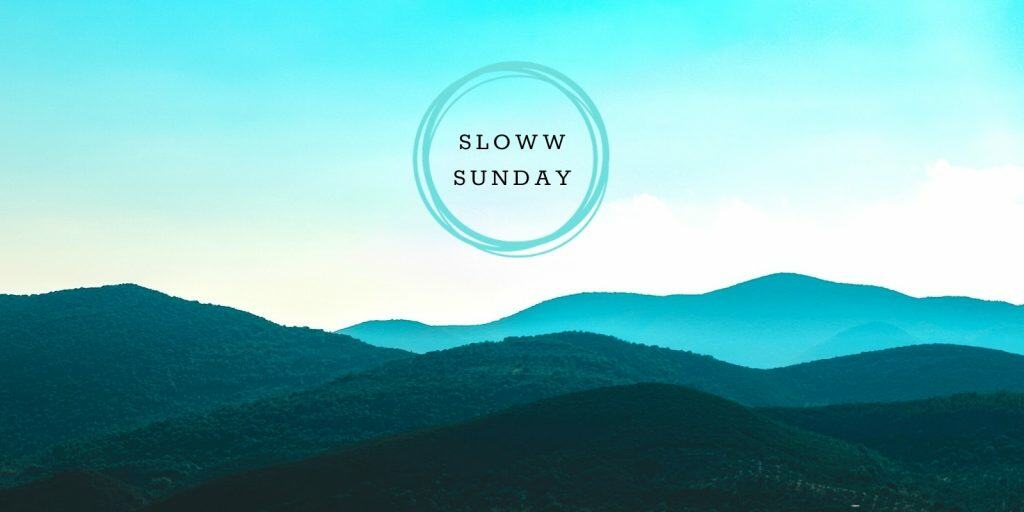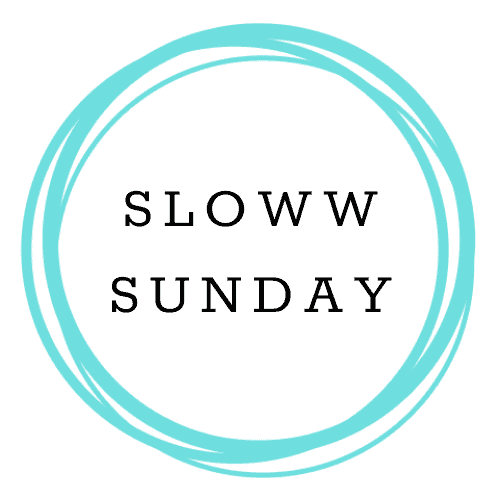Sign up to get the Sloww Sunday newsletter via email for free:👇

Sloww Sunday Newsletter 097 (Mar 6, 2022) — The Meta-Crisis, Human Psychology, Thought Experiments, & More
Happy Sunday!
Here’s the latest from Sloww along with the most interesting things I discovered last week.
To respect your time and attention, every newsletter can be read in under 5 minutes. If you enjoy it, please take 5 seconds to forward the email version to some friends and family. 🙏
🌀 Sloww Stuff
This is a short summary of posts 301-400 on the website (and my journey). It’s amazing that the last year included: the lottery of birth, brain hemispheres, polarity thinking, cognitive biases, mental models, nonduality, and much more. I’ve been creating 100-post recaps since the beginning. They’ve become one of the most useful ways I reflect on my ongoing evolution. You can check out short summaries of: Posts 1-100, Posts 101-200, Posts 201-300, & Posts 301-400.
A Crisis of Crises: What is the Meta-Crisis? (+ Infographics)
What does the term meta-crisis mean? After repeatedly seeing the concept of meta-crisis (also spelled metacrisis and meta crisis), I finally decided it was time to put together an introductory synthesis to educate myself. Here’s everything I learned.
New side project is live: MetaCrisis.org! This website is my proactive response to Daniel Schmachtenberger saying, “I wish there was a directory of meta-crisis solution-related work that I could reference. Would be an awesome project for someone.” Now, there is! This is a new digital directory focused on curating all people and projects involved in the meta-crisis and linking them together to make new connections. There are currently 100+ people and projects listed and 250+ hashtags interconnecting everyone/everything (with more on the way).
🧠 Modern Knowledge
The Psychology of Human Misjudgment
76 mins | YouTube
This speech was originally delivered by Charlie Munger at Harvard in 1995. A decade later in 2005, Munger revised and updated the speech for the book Poor Charlie’s Almanack: The Wit and Wisdom of Charles T. Munger (Expanded Third Edition). For a 600-page book, it’s actually a surprisingly quick and easy read (I’m currently halfway through). Of all 300+ books on my full reading list, there are only about 30 with a 4.8 rating or higher on Amazon. This book is one of them. Summary coming soon!
“In my whole life, I have known no wise people (over a broad subject matter area) who didn’t read all the time—none, zero.” — Charlie Munger
☯️ Timeless Wisdom
The Left-Hand Path of Adventure
4 mins | Joseph Campbell Foundation (YouTube)
In the short video above (and this one), Joseph Campbell outlines our two choices in life.
Right-Hand Path (local to each culture): “The mythology of the village compound that keeps you fixed in the context of your world. You grow up here, you live as expected, and you live a dignified, successful life (and in a rich society a richly developed life).”
Left-Hand Path (the hero’s journey): “On the other hand, you may flip out. You may have the feeling of incongruities here: ‘This doesn’t go with me.’ And, then you move out … You follow the way of your own bliss. You are in a realm for which there are no rules. And, since your bliss is not mine, you don’t know where you’re going. Here you will live a life of danger, creativity, and perhaps not a respected life but certainly an interesting one … When you start off on the quest journey, you are accepting the negative, the dark, the frightening, the terrifying from which you are protected in the enclose (of the right-hand path village compound).”
“The general mythology of the hero’s journey … the individual is going to bring forth in his life something that was never beheld before—namely the fulfillment in time and space of his own potentialities which are peculiar to himself.” — Joseph Campbell
🤯 Mind Expanding
3 Thought Experiments That No One Can Solve
13 mins | Pursuit of Wonder (YouTube)
The Pursuit of Wonder channel has some of the highest-quality videos you’ll find on YouTube. This one covers perception and consciousness through a combo of three thought experiments: John Searle’s ‘The Chinese Room,’ Frank Jackson’s ‘Mary’s Room,’ and Gilbert Harman’s ‘Brain in a Vat.’
“What can you really know with certainty to be true? Can you be certain that anything exists outside your mind? Can you be certain of the nature and conditions of your mind? Can you be certain your senses are not deceiving you? That you are awake and not dreaming? That you’re in the ‘real world’ and not a simulation or a vat? Isn’t the only thing you can be certain of is that you are somewhere, somehow, in some thing—existing as a thinking thing?” — Pursuit of Wonder
💡 New Learning
Metaxy
Wikipedia
· The “in-between” or “middle ground”
“Metaxy is about between-ness in general, and the oscillation between poles of experience in particular. Being and becoming is a metaxy, night and day is a metaxy, and modernism and postmodernism is the metaxy that characterises metamodernism.” — Jonathan Rowson
💭 Deep Thought
Find the others…
Have you heard the phrase “find the others”? Here’s where it comes from:
“Admit it. You aren’t like them. You’re not even close. You may occasionally dress yourself up as one of them, watch the same mindless television shows as they do, maybe even eat the same fast food sometimes. But it seems that the more you try to fit in, the more you feel like an outsider, watching the “normal people” as they go about their automatic existences. For every time you say club passwords like “Have a nice day” and “Weather’s awful today, eh?”, you yearn inside to say forbidden things like “Tell me something that makes you cry” or “What do you think deja vu is for?”. Face it, you even want to talk to that girl in the elevator. But what if that girl in the elevator (and the balding man who walks past your cubicle at work) are thinking the same thing? Who knows what you might learn from taking a chance on conversation with a stranger? Everyone carries a piece of the puzzle. Nobody comes into your life by mere coincidence. Trust your instincts. Do the unexpected. Find the others…” — Timothy Leary
💬 Wise Words
The purpose of life is to discover your gift. The work of life is to develop it. The meaning of life is to give your gift away.
— David Viscott
Sharing: If you enjoyed this issue, please help grow Sloww by forwarding the email version of this issue to some friends and family. It’s free for them to subscribe here.
Support: Sloww is a one-human labor of love (it’s just me over here 👋). Your support keeps the site ad-free and invests in me while you invest in yourself—a true win-win! There are a few financial and free ways to support.
Feedback: Have something you want to say, or just want to say hi? It’s always greatly appreciated. Just send me an email or reach out socially.
Have a purposeful week!
Kyle Kowalski
Synthesizer & Solopreneur, Sloww





